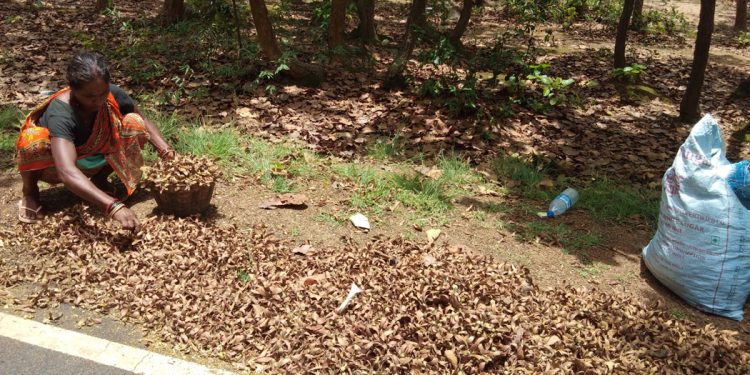Keonjhar: Even though tribals of Keonjhar district largely depend upon minor forest produces such as sal seeds, mahula and tola to eke out a living, distress sale of sal seeds has added to their woes.
Sal seeds are usually collected during the months of May and June. The sal flowers abundantly blossom on trees in dense forest areas of Keonjhar district. Sal seeds contribute heavily to the financial standing of tribal people as well the district’s economy.
Tribals suffer much pain while collecting the seeds. Even at times, they are attacked by wild animals. Most of the family members including children collect sal seeds to the tune of about five to ten kilogram a day.
Raw sal seeds are initially dried up and then burnt in fire. The shell coverings around the seeds are then removed and cleaned before they are sold to traders. Due to lack of awareness on minimum support price (MSP) of sal seeds, they distress sale for Rs 10 to 20 per kg.
Tribal villagers under Patana, Ghatagaon, Ghasipura, Anandpur, Saharapada, Jhumpura, Telkoi, Bansapal, Keonjhar Sadar, Harichandanpur, Joda and Champua blocks have been facing marketing issues and being exploited by outside traders.
Without adequate marketing support of the district administration, their day-long efforts often don’t bring them the desired financial benefits.
On being contacted, Keonjhar Additional Collector Santosh Nayak said, “Keonjhar district administration is giving adequate attention to fair marketing of sal seeds. We are also keeping a vigil to ensure that tribals are not exploited by outside traders”.
That said, the reality on the ground tells a quite different tale.
PNN






































